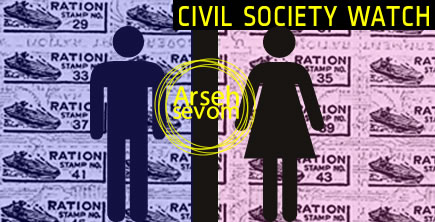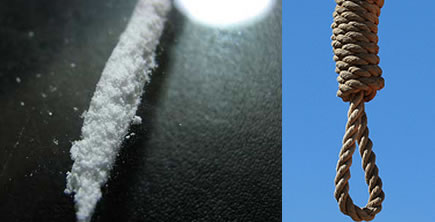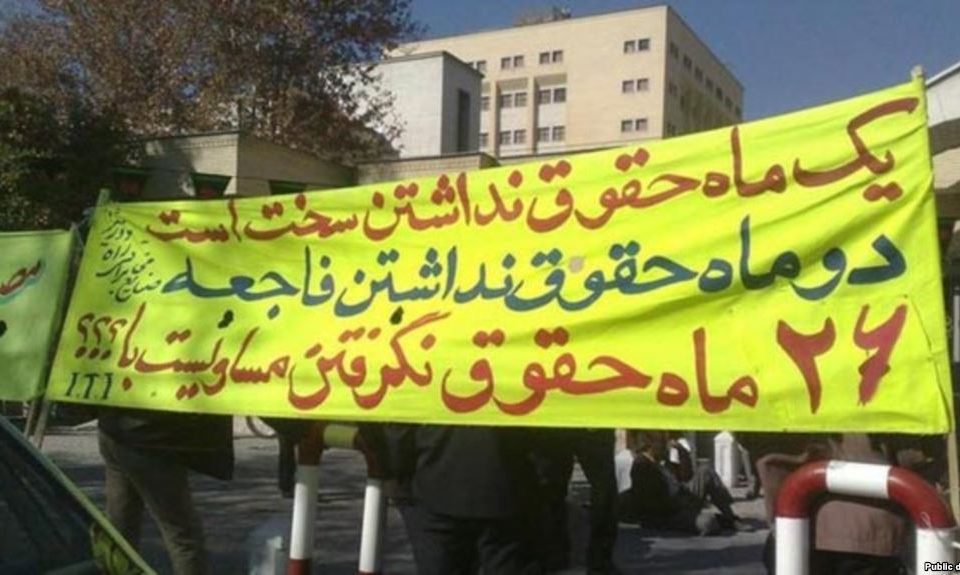
Iran: Workers Unpaid, Sanctions Sting, Executions for Drug Offenses Up
October 15, 2012
Iran: Rationing, Gender Segregation, Executions
October 22, 2012Arseh Sevom — The Islamic Republic of Iran is often praised for its efforts to control drug trafficking on its borders. With the help of the United Nations Office on Drugs and Crime, it has managed to professionalize its border control. In a recent article in the New York Times, journalist Thomas Erdbrink points out that approximately a decade ago, 3,900 Iranian police officers were killed fighting smugglers better equipped than they were.
Yet, the country executes more people proportionally than any other country in the world and at an increasingly alarming rate. Many of those executed are convicted of drug smuggling. In addition, social problems such as drug and alcohol addiction are sometimes punished harshly, with some addicts even receiving death sentences. Most recently, on Monday, October 22, ten more were hanged despite international calls for a moratorium on the death penalty in Iran. In a study on executions for drug offenses in Iran, Amnesty International (p. 5) notes:
“Executions of alleged drugs offenders have rocketed in Iran since mid-2010. They have continued at a high rate, with the Judiciary announcing a crackdown on drug trafficking in October 2010 and following amendments to the Anti-Narcotics Law that came into force in January 2011. Many of those convicted have been killed in secret mass executions inside prisons, sometimes with their family and lawyer having little or no warning. Most, if not all, were condemned to death after grossly unfair trials, including being denied access to a lawyer and having no right to appeal.
The Iranian authorities routinely violate a wide range of international standards relating to the use of the death penalty, including that this ultimate punishment may only be imposed for the most serious of crimes after fair trials, and must not be a mandatory penalty.”
The death penalty for drug offenses is among the most controversial issues. While there is an emerging movement in Iran to abolish the death penalty, it is still a highly sensitive issue it can be seen as opposition to the application of religious law.
In her blog [fa], Mina Zarin touches upon the need for working on the cultural roots to eliminate the hostile environment that allows for the rise in executions. She argues that the culture of violence needs to be eradicated through proper planning by the government to stop executions and give the highest value to the lives of individuals.
Blogger Amir Maghami [fa] criticizes the the judiciary for executing a large group of alleged drug traffickers. He writes that it is damaging to the collective spirit of the society and that it undermines the value of the right to life.
The author of the blog “Legal Articles”[fa] argues that there has been no study indicating that the executions prevent crimes when it comes to drug trafficking. He believes the death penalty should only be prescribed when there is a clear evidence of its preventive impact on society. On the topic of public executions, however, he believes they have a more significant preventive impact on society than non-public ones.
The revised Anti-Narcotics Law, which came into force in January 2011, extended the scope of the death penalty, while at the same time mandating rehabilitation for addicts. (For more information, see page 15 of Amnesty International’s report, Addicted to Death). An estimated 600 people were executed in Iran in 2011, 488 for drug-related crimes.
Human rights organizations are currently pressuring international donors to cut funding for Iran’s drug policing in order to put pressure on the judiciary to stop summary executions for drug offenses.






